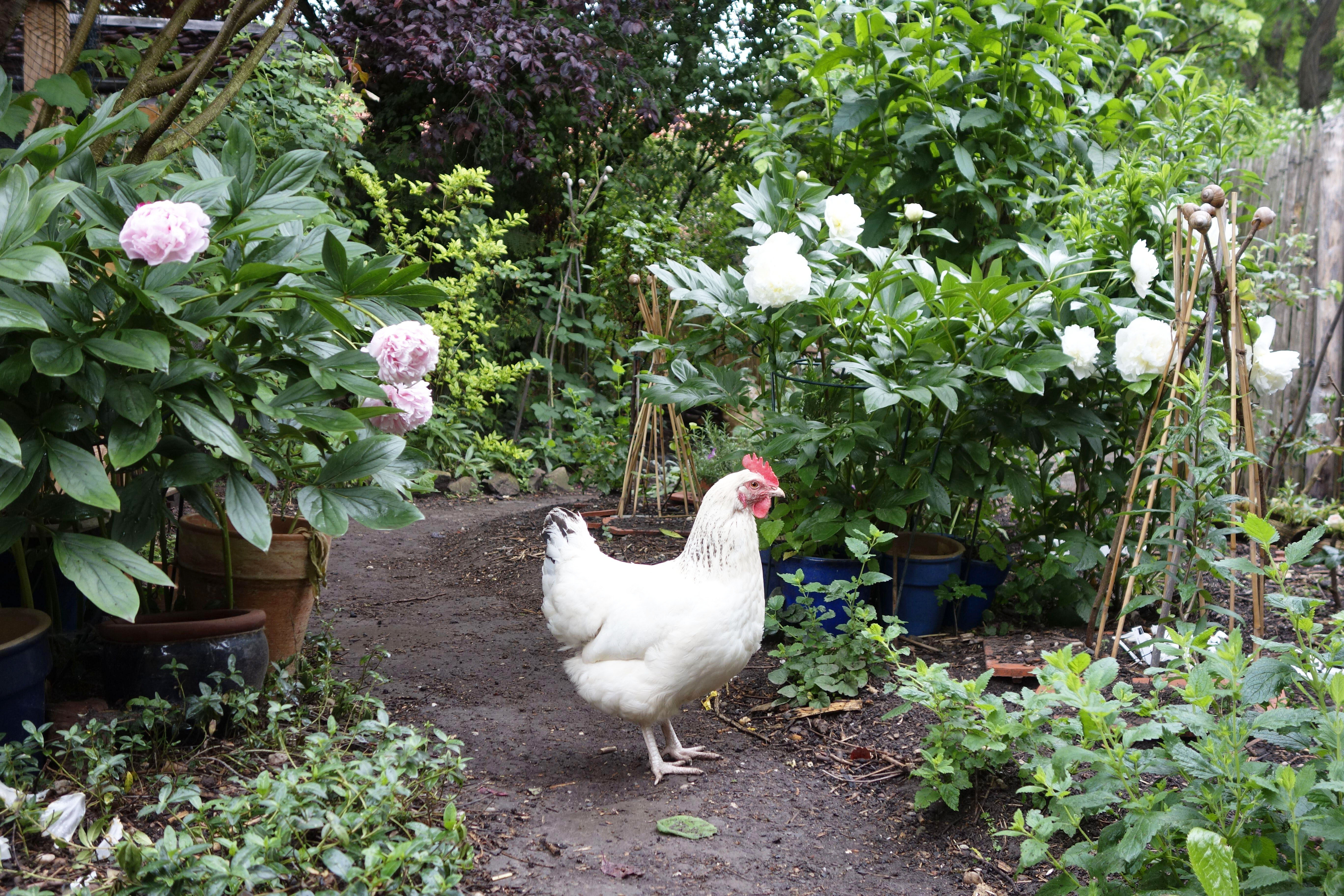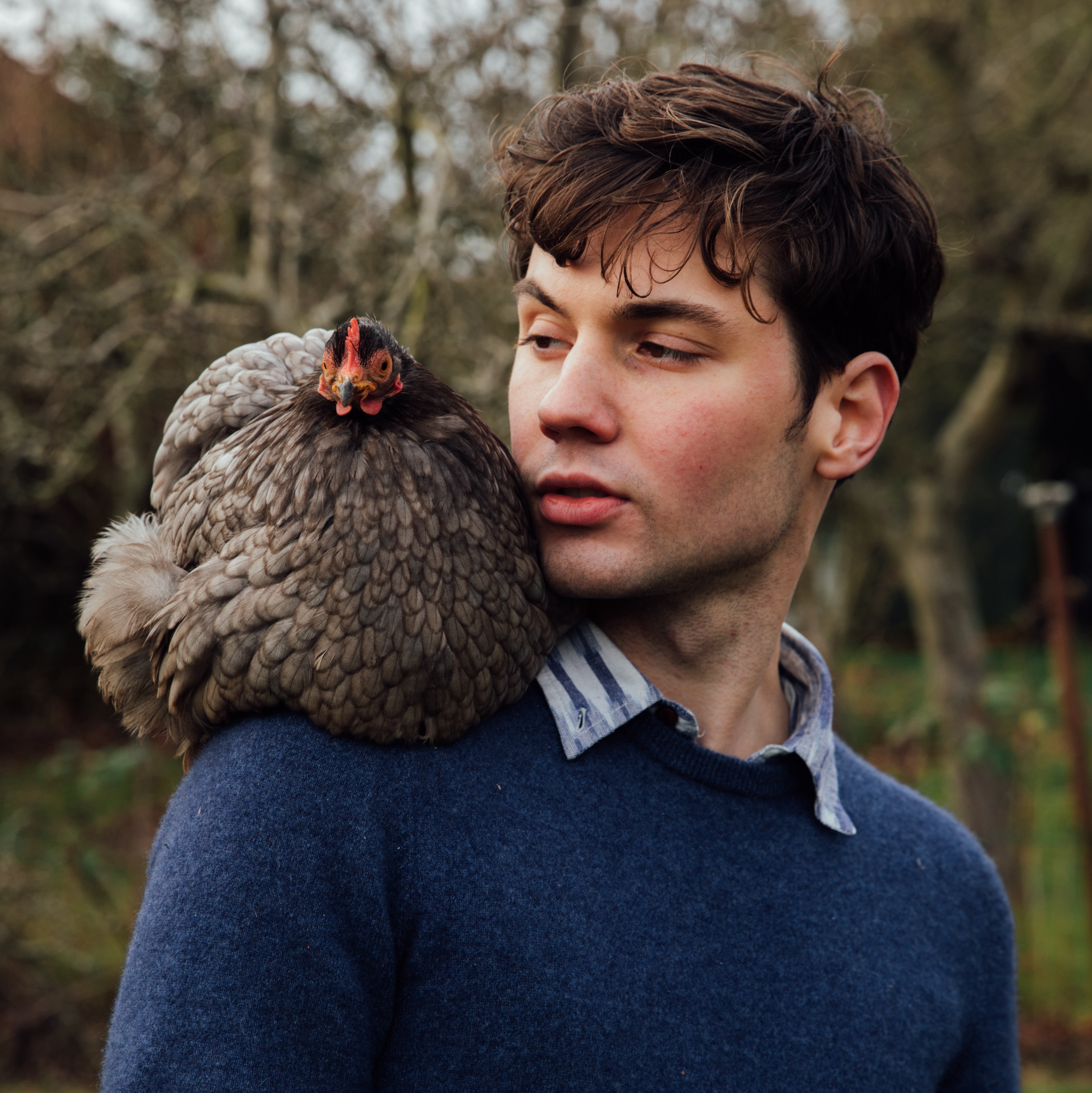Arthur Parkinson: Chicken Licken isn’t just a children’s story about a chicken who believes the sky is falling, it tells us everything we need to know about keeping hens happy
Too many people think chickens only need shelter when it's hot, but the truth is much more complex.


Keeping hens — and indeed all livestock — has proven tricky this Spring and Summer, due to the extreme heart, and lack of rain. The once green grass is now brown, dry and lifeless; my hens spend their hot and sticky days in the shade — which all hens need to be truly content. While they relax, or try to, I’m busy spraying their henhouses with an endless stream of various products to try and get rid of red mite which thrives in these high temperatures. Attempting to keep their water fountains cool and free from algae is proving time-consuming, too.
The wild ancestor of chickens are red junglefowl, busy little, pheasant-like birds that frequent subtropical, dappled woodland. They are normally quite scared of the open sky — a fear that their domestic descendants have inherited. Often, people are dismayed by their hen’s garden antics — they’re no friend to, say, begonias — but they crave, and deserve, a good mixture of woody shrubs, soft fruit and roses. Try planting some currant and gooseberry bushes which will soon grow taller than the hens and flourish thanks for their nitrogen-rich manure, and remember that while dustbathing in your beds, chickens can help break up ground elder and bind weed.
The tale of Chicken Licken — a classic children's story about a chicken who believes the sky is falling — may well have been inspired by the right of hens panicking, which they are inclined to do if they do not have access to some form of overhead shelter. Barn-reared pullets (young hens), for example, can become perplexed and dizzy when they’re first allowed to roam outside. Even an apple falling from a nearby tree is enough to ruffle their feathers. And older ones will still feel exposed to aerial dangers such as plunging hawks.
It was a better understanding of chicken’s complex needs that inspired Sainsbury’s woodland eggs. The scheme — first introduced in 2004 — saw free-range farmers partner with The Woodland Trust, to plant trees inside their poultry ranges. There’s been plenty of progress since then with levels of agroforestry reaching heady, organic heights — most notably, perhaps, at Daylesford Organic. Without these very necessary measures, large flocks of free-range birds will huddle miserably in the shadows of their sheds.
Naturally, sapling trees take a few years to grow and provide a decent canopy, and they need to be watered to help them establish — an undertaking of the farmer that is often not reflected in the price of supermarket eggs. One such answer is to use hazel hurdles or raised wooden pallets. I’ve also seen children’s trampolines, picnic tables and an array of rust bucket farmyard machinery repurposed to great effect. Cacklebean protect their flocks with a smart fabric, stretched over metal frames; Deborah, Duchess of Devonshire let her flock walk freely around the Chatsworth carpark where they sheltered under visiting vehicles. I don’t see why, as we increasingly embrace green energy sources, we can’t let chickens shelter under solar panels…
Exquisite houses, the beauty of Nature, and how to get the most from your life, straight to your inbox.
Arthur Parkinson is a gardener, writer and broadcaster. He trained at the Royal Botanical Gardens, Kew before working for Sarah Raven and as the head gardener at the Emma Bridgewater factory garden. He is the author of four books including 'Flower Yard: Growing Flamboyant Flowers in Containers'.
